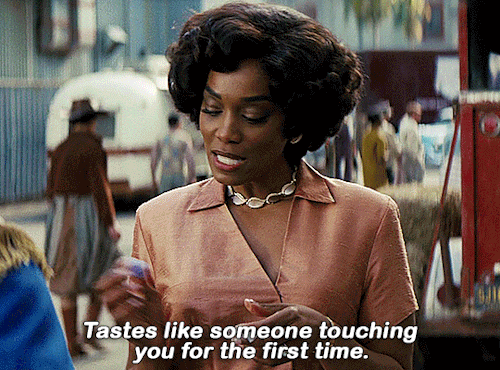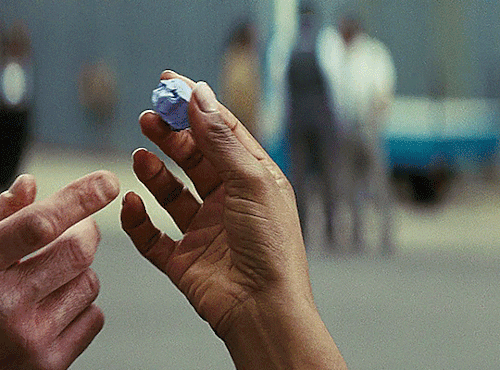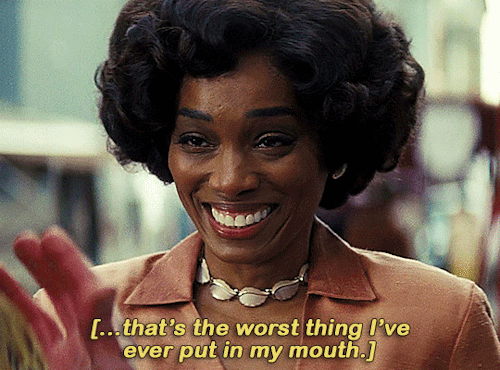You Know, I'll Never Disappear Now Get Us Out Of Here

You know, I'll never disappear Now get us out of here
More Posts from Thewalkinglamppost and Others



megumi. yuuji.
sometimes you're forced to confront the fact that your father will always die for you and you have a very public mental breakdown about it
Tim stared at the projector, biting his lip nervously as he watched an alternate version of Diana and Hal hold down a howling, begging alternate version of Dick as their Bruce vanished through the door, infected blood dripping onto the bomb strapped to his side.
"How many?" his version of Dick asks quietly beside him, the kind of quiet that reminded Tim of the hiss just before a kettle really started screaming.
"Well, it's hard to say, I cannibalized the tech off Evil-Alternate-Superman-42 and it's good but not good enough to scan the entire multiverse so any data is collects isn't really-"
"How many, Tim."
"-conclusive..."He sighs, but doesn't keep fighting. "....98%."
Dick's eyes widen behind his mask. Tim keeps going, pushing it all out as a single blow.
"Counting all the times Bruce dies 98% of the time it's for one of us."
Because it really wasn't just the first Robin, Tim had had an illuminating 36 minutes watching a version of Bruce slip the only intact gas mask over his Tim's unconscious face, whisper that he loved him, and then asphyxiate. Tim is... Tim is just not going to think about it, is what Tim is going to do.
Unfortunately that doesn't actually help. Which he supposes is fair because they did just watch 22 different Bruce's sacrifice themselves for 22 different Richard Grayson's- they had both silently chosen not to talk about the couple of times it had been Richard Wayne.
He vaguely remembers a universe where Bruce was a cat, maybe that would cheer- aaaaaaand Dick was turning on his heel and sprinting down the watchtowers hallways.
Tim thinks of giving Bruce a warning, thinks of a whispered I love you to an unconscious body that would never hear it, and keeps his silence.
.
His eldest, for all his theatrics and love of drama, isn't one to interrupt a meeting for no reason, so when Dick storms into one Bruce is ready for a catastrophe, a natural disaster, one of the family to be in critical condition. What he gets instead is this.
They all startle when the doors open and Dick's steps, usually so quiet, slam against the floor.
"Nightwing is there something-"
"Dude, we're in a meeting-"
"Are you-"
Bruce says nothing, watching the furious set of his son's shoulders as he rounds the table, eyes locked on Bruce's like a raptor diving for it's target. Dick's always been a creature of focus once he has a goal, has always used that focus to ignore his own agony. So he stands, setting his shoulders, becomes the stubborn wall he's known as.
"Everyone out," he barks, to immediate protest.
"Excuse you?" Hal raises his eyebrows, "for one you don't dismiss us and for another-"
"Tell me you wouldn't die for me."
Everyone swerves to look at Dick, jaws dropping.
"Well of course he wouldn't," Ollie chuckles after a moment of stunned silence, so quick to diffuse the tension with a joke, something Dick usually goes along with, "he'd have to love anything other than-"
"Shut the fuck up," Dick snarls, voice as guttural as when he plays Batman, furious in a way he never is with the other heroes. The tension ratchets further, and Bruce is grateful when Superman ushers everyone out, shooting worried looks at the both of them.
"What is this about?" Bruce stalls. He can guess. Tim's been making noise about the multi-verse watches since that alternate Nightwing had let him keep the broken extra one that he'd had on him, refusing to explain why the one of his own wrist didn't quite fit him, just like he'd refused to explain his utter, consuming hatred of his world's Superman. It wouldn't surprise him if it had begun to eat at Dick, if he'd felt compelled to go looking. He's just surprised Dick didn't already know that Bruce would die for him, would chose his son's life over his own every time, without thought, without question, without regret.


Captain America: The Winter Soldier | 2014 Captain America: Brave New World | 2025
Some analysis about Steve.
English is not my native language and I cannot guarantee that I am professional
Attachment Theory
Developed by John Bowlby and Mary Ainsworth, attachment theory posits that early relationships with caregivers shape an individual's emotional bonds and sense of security (Bowlby, 1969). Caregivers, typically the mother or primary caretaker, provide psychological safety, enabling infants or children to confidently explore the world and return for comfort and support when needed. During this period, the mother serves as the child's primary "secure base," a primal instinct that persists into later life, extending to friends and loved ones in adulthood.
In Captain America, Steve Rogers' pre-serum life is depicted as frail, socially marginalized, and frequently bullied. His childhood friend, Bucky Barnes, emerges as Steve’s primary attachment figure, offering protection and affirmation. Scenes of Bucky shielding Steve from bullies and encouraging his resilience establish Bucky as a "secure base," a reliable source of safety that fosters exploration and resilience (Ainsworth, 1989). These early interactions cultivate a relatively secure attachment in Steve, characterized by trust and emotional reliance on Bucky. Notably, the model suggests early experiences shape enduring expectations of caregiver reliability.
Steve’s attachment deepens through shared trauma during World War II. In *Captain America: The First Avenger*, Bucky’s capture by Hydra and Steve’s rescue mission at Azzano solidify their mutual dependence. Bucky’s fall from the train, presumed fatal, triggers Steve’s grief response, aligning with Bowlby’s concept of "separation distress," where the loss of an attachment figure disrupts emotional equilibrium.
Steve’s initial reaction to Bucky’s fall—staring in disbelief at the spot where he vanished, later drinking alone in a bombed-out bar—signals acute separation distress, a hallmark of attachment loss (Bowlby, 1969). Bowlby’s theory outlines grief stages following attachment loss in childhood: protest, despair, and detachment. Steve’s protest phase manifests in his refusal to fully accept Bucky’s death, telling Peggy Carter, “I should’ve grabbed him” (Johnston & Markus, 2011), reflecting guilt and a desire to undo the loss. The despair phase is evident in his withdrawal and self-sacrificial act of crashing the Valkyrie into the Arctic, suggesting Bucky’s absence diminished Steve’s sense of purpose. Unlike typical detachment, Steve’s grief is interrupted by 70 years of cryogenic preservation, leaving him in an unresolved state of loss, later manifesting as chronic grief.
Steve’s subsequent self-sacrifice—crashing the Valkyrie—reflects an internalization of Bucky’s absence, as Steve’s identity is deeply tied to their shared past. In *Captain America: The Winter Soldier*, discovering Bucky alive but brainwashed reignites this attachment. Steve’s refusal to fight Bucky on the helicarrier, stating, “I’m with you to the end of the line,” reveals an enduring attachment bond, driven in part by a desire to restore the security Bucky once provided.
Erik Erikson’s theory of "identity formation" further explains Steve’s attachment. Erikson posits that identity develops through relationships and social experiences, particularly during crises. Steve’s pre-serum identity as a “little guy from Brooklyn” is inseparable from Bucky’s support. In Erikson’s eight-stage theory, the fifth stage (adolescence, ages 12–18) is critical, with the core conflict being *Identity vs. Role Confusion*. In *Civil War*, Steve’s defense of Bucky against Tony Stark and global authorities reflects an identity crisis: abandoning Bucky would betray the self that Bucky helped shape. Thus, Steve’s attachment is not only emotional but existential, anchoring his sense of continuity in a disorienting post-war world.
Existentialism
From an existentialist perspective, Steve’s attachment to Bucky aligns with Jean-Paul Sartre’s concept of authenticity, which involves embracing the freedom and responsibility to define oneself (Sartre, 1943). Steve views Bucky as a touchstone for his authentic self—the Brooklyn kid fighting for justice, not America’s icon. In *The Winter Soldier*, despite Bucky’s transformation into the Winter Soldier, Steve recognizes him, reflecting a refusal to accept the “nothingness” of Bucky’s lost identity. Sartre’s notion of “existence precedes essence” asserts that humans first exist and then define their essence through choices and actions. Steve believes Bucky’s essence—his goodness—persists beneath Hydra’s conditioning, driving his actions. This is evident when Steve drops his shield, choosing vulnerability over combat to reach Bucky’s buried self.
Steve’s persistence also resonates with Martin Heidegger’s “being-toward-death,” which suggests confronting mortality sharpens one’s purpose (Heidegger, 1927). Bucky’s death and Steve’s near-death experiences (the Valkyrie crash, the helicarrier battle) bind them in a shared existential outlook. For Steve, Bucky represents a living link to a past intertwined with death and meaning. In *Civil War*, Steve’s fracturing of the Avengers to protect Bucky underscores this existential commitment, viewing Bucky not as a threat but as a symbol of life and values worth preserving.
Phenomenology
Maurice Merleau-Ponty’s phenomenology, emphasizing intersubjectivity and embodied perception, illuminates how Steve’s perception of Bucky shapes their bond (Merleau-Ponty, 1945). Steve’s view of Bucky is rooted in their shared lifeworld—a pre-war Brooklyn defined by loyalty and mutual care. In *The Winter Soldier*, Steve gazes at the masked Winter Soldier and pleads, “You know me,” an act of phenomenological recognition. Merleau-Ponty posits that the self is constituted through the presence of others: “I am not in front of my body, I am in it, or rather I am it.” The self emerges through interactions with others’ gazes, words, and actions. Steve’s embodied memories of Bucky—their shared past—override the Winter Soldier’s programming, evident in Bucky’s hesitation to kill him.
In Civil War, Steve and Bucky’s reunion in Bucharest further embodies this intersubjective dynamic. Despite global accusations, Steve refuses to see Bucky as a weapon, reflecting a phenomenological affirmation of Bucky’s living humanity. Their physical cooperation against authorities embodies a pre-reflective trust, what Merleau-Ponty describes as the fundamental “coexistence” of human connection. Thus, Steve’s attachment is not abstract but visceral, grounded in the bodily and emotional reality of their shared past.
“Phenomenological identity” refers to an understanding of identity from a phenomenological perspective, distinct from traditional psychological or sociological categorizations (e.g., gender or cultural identity). It focuses on how one experiences and confirms “I am me” through lived interactions with the world and others. For example, identifying as “a little guy from Brooklyn” is not a mere label but emerges through how Steve treats others, how they respond, and how he feels “this is me” in those interactions. For Merleau-Ponty, the body is the medium of world interaction, and relationships are rooted in shared bodily practices. For Steve and Bucky, their pre-war Brooklyn life and wartime camaraderie—marked by physical gestures like Bucky’s arm around Steve’s shoulder, fighting side by side, and trusting glances—are disrupted by Bucky’s fall, leaving Steve with an inner void.
In The First Avenger, Steve clutches a glass of liquor in a bar, unable to get drunk due to his super-soldier metabolism, embodying this loss. His enhanced body, unable to save Bucky, amplifies the pain of separation (Merleau-Ponty, 1945). This phenomenological trauma persists into *The Winter Soldier*. Steve’s body—running, punching bags until they burst—externalizes his inner pain, a futile attempt to reclaim the intersubjective rhythm shared with Bucky. Merleau-Ponty’s concept of “intercorporeality”—the co-constitution of selves through bodily presence—explains the significance of Steve’s reunion with Bucky. Seeing Bucky alive, even as the Winter Soldier, reawakens Steve’s embodied memories, expressed in his desperate plea, “You know me” (Wadlow & Markus, 2014). Thus, separation distress is not abstract but a disruption of Steve’s bodily being-in-the-world, a longing for the tactile and perceptual presence Bucky once provided.








The comic I did for the @gothamhorrorzine










— It's not grape, it's lavender. — Well, if you like the taste of lavender, why not just drink a bottle of perfume?
-
 flos-viridis liked this · 1 week ago
flos-viridis liked this · 1 week ago -
 torturedpoetsoul liked this · 1 week ago
torturedpoetsoul liked this · 1 week ago -
 yuna-greecks liked this · 1 week ago
yuna-greecks liked this · 1 week ago -
 bandaalarga liked this · 1 week ago
bandaalarga liked this · 1 week ago -
 mcjossic liked this · 1 week ago
mcjossic liked this · 1 week ago -
 mad-riff liked this · 1 week ago
mad-riff liked this · 1 week ago -
 sociallyinepttt liked this · 1 week ago
sociallyinepttt liked this · 1 week ago -
 bean-killer123 liked this · 1 week ago
bean-killer123 liked this · 1 week ago -
 100o3k liked this · 1 week ago
100o3k liked this · 1 week ago -
 mhahahaki liked this · 1 week ago
mhahahaki liked this · 1 week ago -
 w-h-i-s-p liked this · 1 week ago
w-h-i-s-p liked this · 1 week ago -
 thewalkinglamppost reblogged this · 1 week ago
thewalkinglamppost reblogged this · 1 week ago -
 thewalkinglamppost liked this · 1 week ago
thewalkinglamppost liked this · 1 week ago -
 keepmeoutofthis reblogged this · 1 week ago
keepmeoutofthis reblogged this · 1 week ago -
 keepmeoutofthis liked this · 1 week ago
keepmeoutofthis liked this · 1 week ago -
 darkmoond3ath liked this · 1 week ago
darkmoond3ath liked this · 1 week ago -
 wednesdayafternoons liked this · 1 week ago
wednesdayafternoons liked this · 1 week ago -
 enderminecraft8 liked this · 1 week ago
enderminecraft8 liked this · 1 week ago -
 kalidaescope liked this · 1 week ago
kalidaescope liked this · 1 week ago -
 yan9719 liked this · 1 week ago
yan9719 liked this · 1 week ago -
 exoticlara liked this · 1 week ago
exoticlara liked this · 1 week ago -
 theboyonthehighcastle liked this · 1 week ago
theboyonthehighcastle liked this · 1 week ago -
 scarlettinsecret liked this · 1 week ago
scarlettinsecret liked this · 1 week ago -
 lizycuc liked this · 1 week ago
lizycuc liked this · 1 week ago -
 mayyak liked this · 1 week ago
mayyak liked this · 1 week ago -
 just-anaverage-person liked this · 1 week ago
just-anaverage-person liked this · 1 week ago -
 eniguma liked this · 1 week ago
eniguma liked this · 1 week ago -
 emoorgan liked this · 1 week ago
emoorgan liked this · 1 week ago -
 songsnstars reblogged this · 1 week ago
songsnstars reblogged this · 1 week ago -
 songsnstars liked this · 1 week ago
songsnstars liked this · 1 week ago -
 systemerrxr404 reblogged this · 1 week ago
systemerrxr404 reblogged this · 1 week ago -
 systemerrxr404 liked this · 1 week ago
systemerrxr404 liked this · 1 week ago -
 frogllad liked this · 1 week ago
frogllad liked this · 1 week ago -
 botanigeist liked this · 1 week ago
botanigeist liked this · 1 week ago -
 memefricker reblogged this · 1 week ago
memefricker reblogged this · 1 week ago -
 carminecarnivale liked this · 1 week ago
carminecarnivale liked this · 1 week ago -
 5illywilly liked this · 1 week ago
5illywilly liked this · 1 week ago -
 arthemise88 liked this · 1 week ago
arthemise88 liked this · 1 week ago -
 lemondramaking liked this · 1 week ago
lemondramaking liked this · 1 week ago -
 memoriklayne liked this · 1 week ago
memoriklayne liked this · 1 week ago -
 tsumusaurus liked this · 1 week ago
tsumusaurus liked this · 1 week ago -
 treeeesap liked this · 1 week ago
treeeesap liked this · 1 week ago -
 themicahverse liked this · 1 week ago
themicahverse liked this · 1 week ago -
 broiamjust-sitting-here liked this · 1 week ago
broiamjust-sitting-here liked this · 1 week ago -
 b-chrno liked this · 1 week ago
b-chrno liked this · 1 week ago -
 packleaderbriggan liked this · 1 week ago
packleaderbriggan liked this · 1 week ago -
 inthenowandforever liked this · 1 week ago
inthenowandforever liked this · 1 week ago

Ash|24|Taurus🥀Slowly rotting, decaying, and coming back to life all over again🥀|Artist|
229 posts






